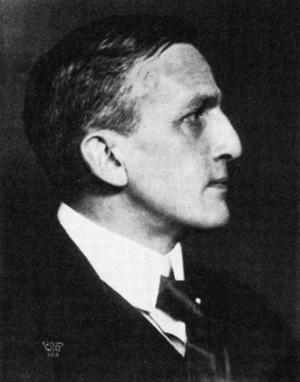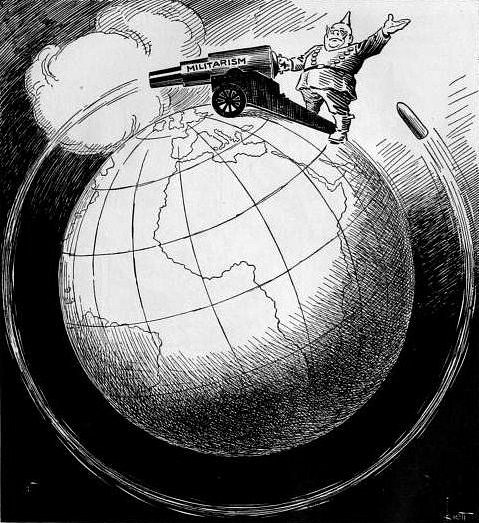|
Friedensbund Der Kriegsteilnehmer
The Friedensbund der Kriegsteilnehmer (commonly translated as "Association of War Veterans for Peace") was a nonparty, pacifist, and anti-military organisation in the Weimar Republic. It was instituted by former soldiers who had fought in World War I and existed from 1919 to 1927. At its peak, around 1921, the organization had about 30,000 members. Initiators and founding members included the authors Carl von Ossietzky und Kurt Tucholsky, and the scientists Emil Julius Gumbel und Georg Friedrich Nicolai Georg Friedrich Nicolai (born Lewinstein; 6 February 1874 – 8 October 1964) was a German physiologist. Biography He was born in 1874 in Berlin. He studied at the University of Berlin, and later practiced medicine at the Charité in Berlin. He a .... References * * * {{Germany-hist-stub Weimar Republic Anti-militarism in Europe German veterans' organisations Pacifism in Germany ... [...More Info...] [...Related Items...] OR: [Wikipedia] [Google] [Baidu] |
Weimar Republic
The Weimar Republic (german: link=no, Weimarer Republik ), officially named the German Reich, was the government of Germany from 1918 to 1933, during which it was a constitutional federal republic for the first time in history; hence it is also referred to, and unofficially proclaimed itself, as the German Republic (german: Deutsche Republik, link=no, label=none). The state's informal name is derived from the city of Weimar, which hosted the constituent assembly that established its government. In English, the republic was usually simply called "Germany", with "Weimar Republic" (a term introduced by Adolf Hitler in 1929) not commonly used until the 1930s. Following the devastation of the First World War (1914–1918), Germany was exhausted and sued for peace in desperate circumstances. Awareness of imminent defeat sparked a revolution, the abdication of Kaiser Wilhelm II, formal surrender to the Allies, and the proclamation of the Weimar Republic on 9 November 1918. In its i ... [...More Info...] [...Related Items...] OR: [Wikipedia] [Google] [Baidu] |
World War I
World War I (28 July 1914 11 November 1918), often abbreviated as WWI, was one of the deadliest global conflicts in history. Belligerents included much of Europe, the Russian Empire, the United States, and the Ottoman Empire, with fighting occurring throughout Europe, the Middle East, Africa, the Pacific, and parts of Asia. An estimated 9 million soldiers were killed in combat, plus another 23 million wounded, while 5 million civilians died as a result of military action, hunger, and disease. Millions more died in genocides within the Ottoman Empire and in the 1918 influenza pandemic, which was exacerbated by the movement of combatants during the war. Prior to 1914, the European great powers were divided between the Triple Entente (comprising France, Russia, and Britain) and the Triple Alliance (containing Germany, Austria-Hungary, and Italy). Tensions in the Balkans came to a head on 28 June 1914, following the assassination of Archduke Franz Ferdin ... [...More Info...] [...Related Items...] OR: [Wikipedia] [Google] [Baidu] |
Carl Von Ossietzky
Carl von Ossietzky (; 3 October 1889 – 4 May 1938) was a German journalist and pacifist. He was the recipient of the 1935 Nobel Peace Prize for his work in exposing the clandestine German re-armament. As editor-in-chief of the magazine ''Die Weltbühne'', Ossietzky published a series of exposés in the late 1920s, detailing Germany's violation of the Treaty of Versailles by rebuilding an air force (the predecessor of the Luftwaffe) and training pilots in the Soviet Union. He was convicted of treason and espionage in 1931 and sentenced to eighteen months in prison but was granted amnesty in December 1932. Ossietzky continued to be a vocal critic against German militarism after the Nazis' rise to power. Following the 1933 Reichstag fire, Ossietzky was again arrested and sent to the Esterwegen concentration camp near Oldenburg. In 1936, he was awarded the 1935 Nobel Peace Prize but was forbidden from travelling to Norway and accepting the prize. After enduring years of mistre ... [...More Info...] [...Related Items...] OR: [Wikipedia] [Google] [Baidu] |
Kurt Tucholsky
Kurt Tucholsky (; 9 January 1890 – 21 December 1935) was a German journalist, satirist, and writer. He also wrote under the pseudonyms Kaspar Hauser (after the historical figure), Peter Panter, Theobald Tiger and Ignaz Wrobel. Tucholsky was one of the most important journalists of the Weimar Republic. As a politically engaged journalist and temporary co-editor of the weekly magazine ''Die Weltbühne'' he proved himself to be a social critic in the tradition of Heinrich Heine. He was simultaneously a satirist, an author of satirical political revues, a songwriter and a poet. He saw himself as a left-wing democrat and pacifist and warned against anti-democratic tendencies – above all in politics, the military – and the threat of National Socialism. His fears were confirmed when the Nazis came to power in January 1933. In May of that year he was among the authors whose works were banned as " un-German", and burned; he was also among the first authors and intellectuals whose G ... [...More Info...] [...Related Items...] OR: [Wikipedia] [Google] [Baidu] |
Emil Julius Gumbel
Emil Julius Gumbel (18 July 1891, in Munich – 10 September 1966, in New York City) was a German mathematician and political writer. Gumbel specialised in mathematical statistics and, along with Leonard Tippett and Ronald Fisher, was instrumental in the development of extreme value theory, which has practical applications in many fields, including engineering and finance. In 1958, Gumbel published a key book, ''Statistics of Extremes'', in which he derived and analyzed the probability distribution that is now known as the Gumbel distribution in his honor. In the 1920s and early 1930s, Gumbel was considered unusual and highly controversial in German academic circles for his vocal support of left-wing politics and pacifism, and his opposition to Fascism. His influential writings about the politically motivated Feme murders made the case that the Weimar Republic was corruptly anti-leftist and anti-republican. Gumbel publicly opposed the Nazi Party and, in 1932, he was one of the 33 ... [...More Info...] [...Related Items...] OR: [Wikipedia] [Google] [Baidu] |
Georg Friedrich Nicolai
Georg Friedrich Nicolai (born Lewinstein; 6 February 1874 – 8 October 1964) was a German physiologist. Biography He was born in 1874 in Berlin. He studied at the University of Berlin, and later practiced medicine at the Charité in Berlin. He admired the works of physiologist Ivan Petrovich Pavlov, and with internist Friedrich Kraus, he published a book on electrocardiography titled ''Das Elektrokardiogramm des gesunden und kranken Menschen''. In 1914, at the onset of World War I, Nicolai composed an anti-war treatise called "Manifesto to the Europeans". Only three other intellectuals in Germany signed Nicolai's manifesto; they being physicist Albert Einstein, astronomer Wilhelm Julius Förster and philosopher Otto Buek. During the war he published ''The Biology of War'', an indictment of warfare which was translated into several languages. Wolf Zuelzer, "Nicolai, Georg Friedrich" in ''The World Encyclopedia of Peace''. Edited by Linus Pauling, Ervin Laszlo, and Jong Youl Y ... [...More Info...] [...Related Items...] OR: [Wikipedia] [Google] [Baidu] |
Anti-militarism In Europe
Antimilitarism (also spelt anti-militarism) is a doctrine that opposes war, relying heavily on a critical theory of imperialism and was an explicit goal of the First and Second International. Whereas pacifism is the doctrine that disputes (especially between countries) should be settled without recourse to violence, Paul B. Miller defines anti-militarism as "ideology and activities...aimed at reducing the civil power of the military and ultimately, preventing international war". Cynthia Cockburn defines an anti-militarist movement as one opposed to " military rule, high military expenditure or the imposition of foreign bases in their country". Martin Ceadel points out that anti-militarism is sometimes equated with pacificism—general opposition to war or violence, except in cases where force is deemed necessary to advance the cause of peace.Martin Ceadel, 'Thinking about peace and war''. Oxford, Oxford University Press, 1987. , p. 101. Distinction between antimilitarism and paci ... [...More Info...] [...Related Items...] OR: [Wikipedia] [Google] [Baidu] |
German Veterans' Organisations
German(s) may refer to: * Germany (of or related to) **Germania (historical use) * Germans, citizens of Germany, people of German ancestry, or native speakers of the German language ** For citizens of Germany, see also German nationality law **Germanic peoples (Roman times) * German language **any of the Germanic languages * German cuisine, traditional foods of Germany People * German (given name) * German (surname) * Germán, a Spanish name Places * German (parish), Isle of Man * German, Albania, or Gërmej * German, Bulgaria * German, Iran * German, North Macedonia * German, New York, U.S. * Agios Germanos, Greece Other uses * German (mythology), a South Slavic mythological being * Germans (band), a Canadian rock band * German (song), "German" (song), a 2019 song by No Money Enterprise * ''The German'', a 2008 short film * "The Germans", an episode of ''Fawlty Towers'' * ''The German'', a nickname for Congolese rebel André Kisase Ngandu See also * Germanic (disambi ... [...More Info...] [...Related Items...] OR: [Wikipedia] [Google] [Baidu] |


